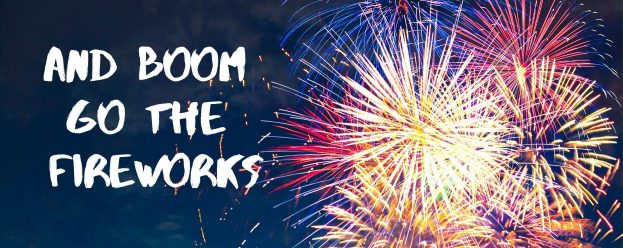18th Jul 2014

Estimated reading time: 5 minutes
I have to admit that I became a bit nostalgic when I received the consumer fireworks catalogue a couple months ago in the mail. It took me back to my early teens, flipping through the catalogue wondering what, if anything, my parents would let me buy. At that time, you could not buy fireworks in Michigan, except for sparklers, smoke balls, and other fairly uninteresting items.
Now, thanks to the Michigan Fireworks Safety Act, which became effective January 1, 2012, the once prohibited fireworks are now legal to sell, purchase and use in Michigan. No longer is ordering from magazines required for access to the “good stuff,” as temporary fireworks stands and strip-mall stores are popping up everywhere. If you do not think fireworks are big business, then you certainly did not go into one of these fireworks stores on July 3.
While people generally know of these recent events, there remain several questions as to what the general public can do with fireworks. We recently celebrated Independence Day. While everyone knows (and expects) that fireworks will be set off on July 4 to celebrate, the “celebration” appears to occur for days (and weeks) before and after the holiday. In fact, fireworks can be heard year round. Some people are annoyed by the fireworks; others are not.
Representing municipalities, we enjoy a unique perspective. Numerous residents voice their displeasure over the fireworks at city council meetings, to administration, and to the police departments. People are looking to their local municipality for help.
When the Michigan Fireworks Safety Act initially was enacted, it allowed municipalities to enact ordinances regulating the “ignition, discharge, and use of consumer fireworks,” but not on the day before, day of, or the day after a national holiday. National holidays are specifically identified in federal statute (5 U.S.C. §6103) as:
- New Year’s Day
- Martin Luther King, Jr. Day
- Washington’s Birthday
- Memorial Day
- Independence Day
- Labor Day
- Columbus Day
- Veterans Day
- Thanksgiving Day
- Christmas Day
Thus, local municipalities could not regulate consumer fireworks at all for 30 days of the year. While on its face it may not seem unreasonable, just ask people who live next door to the person who thought lighting off fireworks at 3:00 a.m. was a good idea.
After outcries across the state, the legislature gave municipalities the added ability to regulate the use of fireworks on those 30 days, between the hours of midnight and 8:00 a.m. (1:00 a.m. and 8:00 a.m. on New Year’s Day.). In more rural areas (municipalities with less than 50,000 in population located in counties with less than 750,000 in population) the hours are between 1:00 a.m. and 8:00 a.m. While the state law contains some regulations on the use of fireworks, they are not all encompassing. For example, the state law regulates the consumer fireworks as follows:
- Consumer fireworks cannot be used on public property, school property, church property, or property of someone else without the express permission of those persons or entities.
- Fireworks cannot be used by persons who are under the influence of alcohol and/or controlled substances.
With the increased ability to regulate, some municipalities have enacted their own regulations, while others have opted not to. You will need to check your local municipality to see what is required or prohibited in your jurisdiction. Some municipalities have enacted regulations that include the following:
- Persons under 18 years old must be under the direct supervision of adults when using fireworks.
- You cannot let remnants of fireworks land on public property or property of others.
- You cannot use fireworks during burn bans.
- You cannot use consumer fireworks without a fire extinguisher or hose readily accessible.
- Specifically prohibiting the use of consumer fireworks during the hours and days not specifically allowed by state law.
Most regulations concern the use of “consumer fireworks.” Consumer fireworks are defined in the state statute as follows:
Fireworks devices that are designed to produce visible effects by combustion are required to comply with the construction, chemical composition, and labeling regulations promulgated by the United States Consumer Product Safety Commission…and that are listed in APA standard 87-1, 3.1.2, 3.1.3 or 3.5. Consumer fireworks does not include low-impact fireworks.
What does this definition mean? Essentially it means things that used to be prohibited in Michigan, such as roman candles, bottle rockets, firecrackers, and other fireworks that explode or shoot in the air. Specifically excluded from this definition are low-impact fireworks. Low impact fireworks are defined as ground and hand-held sparkling devices, such as sparklers, snakes, and smoke balls.
Violations of state law and local ordinances can be addressed by way of district court citations. Police departments are often unable to identify the specific location where fireworks are being ignited contrary to law. Other than the occasional neighbor informing the police department as to the source of the violations, the police departments are left trying to somehow locate their sources. Even if they are able to locate the source of the wrongful use, it often becomes hard to determine the responsible person. In response, some municipalities have enacted ordinances making the property owner responsible for the fireworks that are wrongfully utilized on their property.
While some people find fireworks a great way to celebrate national holidays, some find them disruptive to daily lives. There is certainly a struggle to find the middle ground of community acceptability. There can be a difference between what is permitted under state and local law and what is proper and decent for persons living in close proximity to others. While I see the same excitement for fireworks in my children’s eyes that I once felt, common sense and courtesy are what I hope to instill in their enjoyment of fireworks, regardless of what the laws may permit.
Written by Beier Howlett
Updated Michigan Fireworks Laws 2019
Related Links


